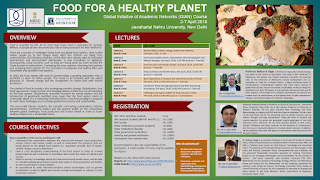JSCIRES Special issue on Machine Learning
Machine learning, a scientific discipline deals with developing systems which can learn from data and can make decisions by using the knowledge derived from the data. The discipline has been an important pillar of Artificial Intelligence, and has earned considerable attention from researchers worldwide because of its ability to extract knowledge from raw data by using sound statistical principles.
Scientometrics is a domain that performs a quantitative and qualitative assessment of research and scientific progress. The field has earned popularity in last few years owing to the need to measure research outputs at individual, institutional and geographical levels. As a result of this need, different parameters are brought-up and various databases like Scopus, Web of Science and Google scholar are built for computation of these parameters. The data generated and stored as a result of proliferation of research papers and other scientific activities is vast. Analysis of the data cannot be performed without the intervention of sophisticated tools and techniques. Consequently, the use of Machine leaning algorithms for carrying out tasks like classification, regression, clustering and associations on these databases becomes imminent. The indicators to mark research performance use citation information in a well-defined way. Citations have become a key component in evaluating performance for authors, articles and journals. To evaluate the role of Machine Learning in Scientometrics, ML techniques can help in predicting citation count, can provide useful insights on computing new bibliometric indexes and also, in finding associations among them. The usage of powerful statistical tools like multiple linear regression, convex/concave optimization and gradient ascent/descent algorithms can be explored in scientometric and bibliographic analysis.
The special issue aims to capture the baseline, set the tempo for future research in India and abroad and prepare a scholastic primer that would serve as a standard document for future research. we hope to learn about methods that are applicable to Scientometrics but are not currently used, and also making Computer Science practitioners aware of the interesting problems that complex Scientometric/ Bibliometric data sets provide. We welcome original and unpublished contributions (adhering to the journal format) that discuss new developments in efficient models for complex computer experiments and data analytic techniques which can be used in Scientometric data analysis as well as related branches in physical, statistical and computational sciences.
Topics: Specific topics of interest include, but are not limited to:
- Bibliometrics, scientometrics, webometrics, and altmetrics
- Computational Intelligence methods in Scientometric data fitting
- Econometric Models in Scientometrics
- Big data in Scientometrics
- Machine Classification methods
- Bayesian and Probabilistic models in Scientometrics
- Machine Learning tools in Scientometric time series analysis
- Interpolation methods for data fitting problems
- Influence Modeling
IMPORTANT DATES:
- Paper Submissions: June 05, 2018
- Acceptance Notification: September 05, 2018
- Revised Submission: October 15, 2018
- Final Acceptance Notification: November 15, 2018
- Camera Ready Submission: November 30, 2018
Editors-Special Issue:
Snehanshu Saha, PES University South Campus, Bangalore
Saibal Kar, Centre for Studies in Social Sciences, Calcutta
Associate Editor-Special Issue:
Archana Mathur, Indian Statistical institute, Bangalore
Click to see Profile of Editors of Special Issue
Further Details about the Issue | Journal of Scientometric Research

























